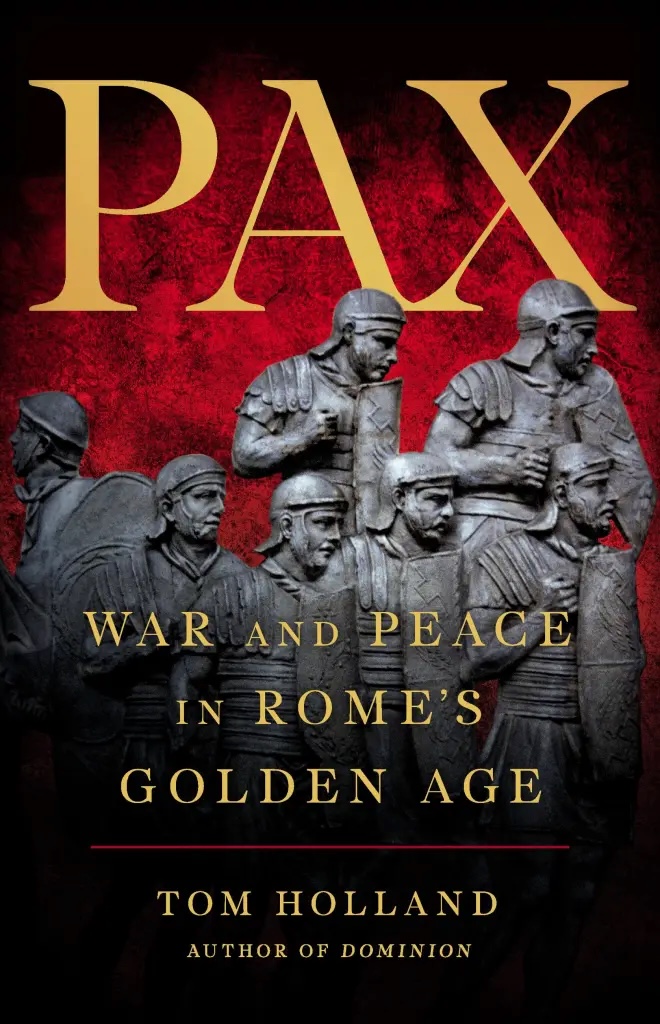Whenever people think about Rome (say, after reading the New Testament, or Shakespeare, or scrolling through TikTok), they tend to focus on Rome’s transition from a republic to an imperial monarchy. They recall Julius Caesar crossing the Rubicon, declaring himself dictator, and being assassinated by senators hoping to restore the republic, only for his adopted son (Augustus) to take back control, defeat his rivals, dissolve the senate, and establish the empire. Meanwhile, a child was born in Bethlehem.
It’s the period after this tumult, popularly known as the Pax Romana, that receives less attention, despite being arguably more relevant for understanding the world today. This was when Rome became a superpower, spanning three continents and bringing its way of life to the whole world. Paradoxically, this was also when the signs of decline began to manifest themselves, particularly among the elite class, and the empire became ever more diverse, calling into question what it even meant to call oneself Roman.
In his latest book, Pax: War and Peace in Rome’s Golden Age, Tom Holland does a great service: he covers this important period in Western history, not just in a fascinating narrative, but reflecting on the true nature of civilizational progress, successful leadership, and the work of divine providence in human affairs.
Holland begins with one of the most corrupt and disgusting historical figures, Emperor Nero. Last of August’s line, Nero had a surprisingly long reign (AD 54-68) despite his murderous cruelty and deviant behavior. Holland opens with the funeral of Nero’s wife, Poppea, as an opportunity to describe Rome at that point. Yes, Nero likely murdered her and her unborn child in a fit of rage. And replaced her with a mutilated boy who resembled her. And Nero was likely responsible for the great fire that destroyed Rome a few years earlier. But, for all that, as Holland shows, he also happened to be a source of stability for the empire.
Once Nero killed himself, after learning of a rebellion in Germany, chaos followed, which resulted in the succession of four emperors within a single year. At first, there seemed grounds for optimism, particularly with accession of Servius Sulpicius Galba, a man with a distinguished record “as a magistrate, as a soldier, as a governor of major provinces.” Galba, however, was also an insufferable snob with a fatal sense of entitlement.
Only a few months later, Marcus Salvius Otho, who had “become a byword for both effeminacy and hooliganism” because of his friendship with Nero, launches a coup against Galba and becomes emperor. He is soon replaced by Aulus Vitellius, the commander of the German armies who also had a “reputation for viciousness and depravity” and close ties to Nero. Finally, Vitellius is replaced by Titus Flavius Vespasianus, a commander in Judea who was “popular with the men he commanded,” but “quite without pedigree.”
With each of these “emperors,” Holland is careful to note the new power dynamics of the empire. No longer is it populist generals waging wars against the patrician senators over the fate of the republic; now, it is rival factions in Rome’s massive military fighting for the crown and ultimate power. Galba and Otho represented the far west (Iberia), Vitellius represented its north (South Germany and Eastern Gaul), and Vespasian represented the east (Judea and Egypt).
Not surprisingly, after Vespasian’s rule, Roman culture became noticeably more oriental and “Hellenized.” Efforts to tame and develop the wild areas in northern Germany, Western France, and England, are gradually abandoned while the emperors focus their efforts on quelling revolts in the Balkans and Judea, as well as expanding eastward into Persia.
Vespasian’s ten-year rule restores the Pax Romana. He is succeeded by his son Titus, most famous for his bloody siege of Judea and the destruction of the Jewish temple. Titus’s reign is cut short by illness, which leads to the rise of his brother Domitian whom Holland describes as a paranoid micromanager with a mission to appease the gods after the catastrophic eruption of Vesuvius. Domitian is finally assassinated and replaced by Cocceius Nerva, who cleared the way for his eminent successors, Trajan and Hadrian.
Although almost opposite in their approaches to leadership (Trajan wanted to expand while Hadrian wanted to consolidate) as well as temperament (Trajan hated talking and liked warring while Hadrian loved talking and preferred rebuilding), both were among Rome’s greatest emperors and enjoyed enormous political capital.
Although hindsight confers the greatest honor to these last two emperors, Holland’s history compels the reader to reconsider this assessment. From Nero to Hadrian (AD 54-138), the emperors were all kept busy with the same challenges that came with maintaining the Pax Romana: tame the frontier, pay the praetorian guard, kill all rivals, feed the plebeians in Rome, and pick a good successor. This necessitated extreme ruthlessness by all of them, even in the best of times.
Moreover, the combination of godlike power and pagan amorality led all the emperors to suffer from dysfunctional personal lives where they regularly cheated on their wives and indulged in various perversions (it wasn’t just Nero). Ironically, the most pious of them, Domitian, also happened to be the most malevolent, persecuting and martyring a record number of Christians.
Altogether, this leads the reader to wonder just how great the Romans really were. Until a majority of Romans converted to Christianity, the whole empire would be locked in a bloody cycle of civil wars and rebellions while being ruled by half-insane emperors for at least two more centuries. The Dark Age that followed the empire’s collapse a few centuries after that would have lasted indefinitely. In other words, without the countercultural Christians working in the margins, there would have been the modern West as it is today in its post-Christian disorder. Clearly, God picked a good time to become incarnate.
It’s doubtful that Holland intended to inspire this kind of gratitude for the appearance of Christianity, but this is the real takeaway, and it’s something that everyone, not just Christians, should celebrate.

__________
You may also enjoy:
Carrie Gress No One Envies Thoise Who Suffer
Robert Royal Tolle, Lege
















